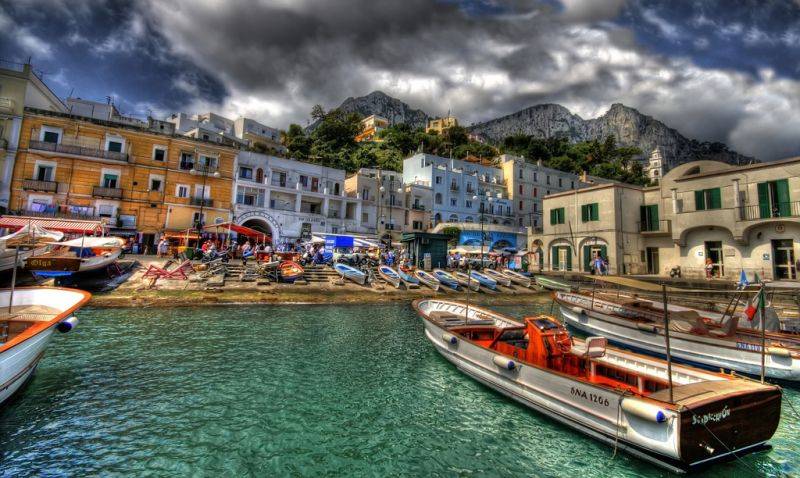Le Conversazioni
At the Casa Italiana Zerilli-Marimò, the director Stefano Albertini presented a documentary called “Le Conversazioni” (“Conversations”) by directors Antonio Monda and Davide Azzolini. After Albertini’s brief introduction, Monda took the stage and explained that the night’s presentation would be last year’s film edition of 2007, focusing on the dialectic that exists between cinema and literature. The upcoming 2008 edition will take place in Capri June 27 to July 6 dealing with the intriguing topic of memory.
The breathtakingly beautiful footage of Capri that appears merits at least one view of this documentary. As the title of the documentary suggests, a series of discussions is presented with Monda as the sole interviewer. In the 2007 edition shown at the Casa Italiana, famous writers, screenwriters, film producers, among others, are engaged in a dialogue, divided between Monda’s questions in Italian—after all, it does take place in Capri—and the interviewees’ responses in English. Appearing are such notables as Ethan Coen, Annie Proulx, Michael Cunningham, Martin Amis, Ian McEwan, Colum McCann, Claire Messud, and Chuck Palahniuk. Interviews were conducted on a one-to-one basis, but the editing of the documentary provided a smooth transition from one interviewee to the next to mirror a panel discussion.
While “Le Conversazioni” is considered a documentary, it is not one that typically puts the audience to sleep; rather, the delightful and colorful personalities of each interviewee clearly showed. The first segment presented some interesting facts and tidbits about each person’s personal life before becoming a writer or getting involved in the film industry. Messud and Mc Cann in particular had a great sense of humor and wit that often elicited chuckles from the audience. Messud’s political jest against George Bush was both witty and clever (and true)—that if he read novels, the world would be a very different place, and was met with raucous laughter, cheers, and applause from the audience. All interviewees emphasized the importance the written word has in our society today, whether for intellectual enrichment or pleasure reading.
The unfortunate truth, as first sparked by a question from Monda, is that perhaps film, the dimension of moving images, is slowly replacing the written word, or literature, in today’s society. It is of course no mystery that an interest in reading has dwindled rapidly nowadays with the advent of both television and cinema. Through a panel discussion of all interviewees, a conclusion was reached: while people do prefer exciting films as opposed to picking up and reading a well-written novel (since we, as human beings, are predominantly influenced by visual images), literature will never be lost since there will always be stories that must be told and that pluck the strings of each and everyone’s heart. Besides, there is no better way to have a more intimate relationship with a piece of art than with a book: to sit in a quiet area and skim, read, re-read, and ruminate over certain lines and passages, which can never be achieved in a theater setting. The cinema offers an experience that is in large part “exterior,” that presents the characters’ worlds, as opposed to the interiority that a book offers into various protagonists’ thought processes and emotions through the use of words and clever narrative devices. While all of this may seem like a bleak reality for literature, the final remarks and the epilogue provide the viewer with a brighter outlook—that film and literature can actually co-exist, each shedding light on different aspects present in the other, specifically evident in cinematic adaptations of novels and short stories (i.e. No Country for Old Men and Brokeback Mountain).


































i-Italy
Facebook
Google+
This work may not be reproduced, in whole or in part, without prior written permission.
Questo lavoro non può essere riprodotto, in tutto o in parte, senza permesso scritto.